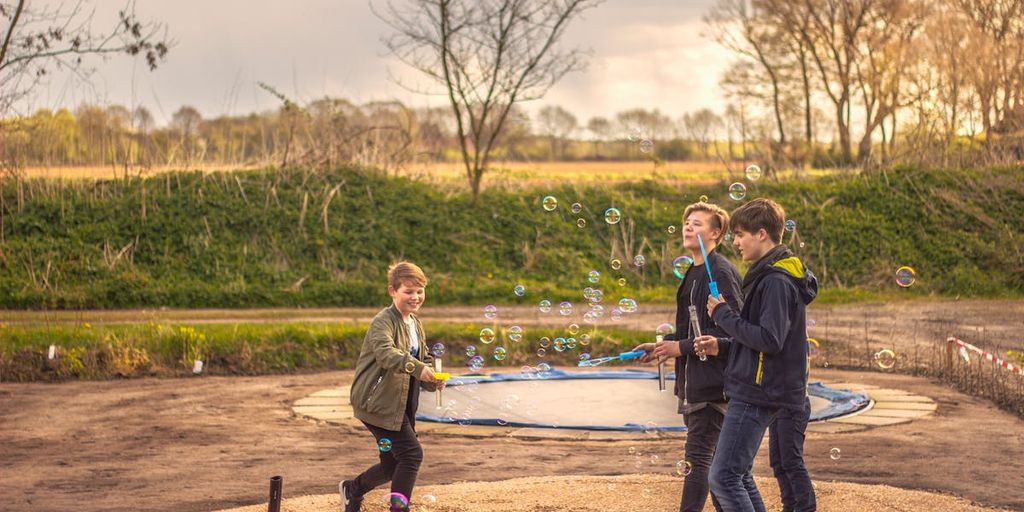
Play is an essential aspect of childhood, contributing significantly to a child’s cognitive, physical, social, and emotional development. Recognized as a fundamental right by the United Nations High Commission on Human Rights, play is far from a mere leisure activity—it is the real work of childhood. Through play, children develop essential life skills, build emotional resilience, and form social bonds. This article explores the multifaceted importance of play in child development and offers insights into how parents and educators can foster a playful environment.
Key Takeaways
- Play is crucial for cognitive development, enhancing problem-solving skills, creativity, and memory.
- Physical play helps in developing motor skills, encouraging fitness, and promoting healthy growth.
- Engaging in play fosters social skills, emotional resilience, and empathy among children.
- Unstructured play allows children the freedom to explore and stimulates their curiosity.
- Parental involvement in play strengthens bonds and models positive behaviors for children.
The Role of Play in Cognitive Development
Enhancing Problem-Solving Skills
Play is a powerful tool for cognitive development in young children. Through play, children explore the world around them, experiment with different ideas, and develop critical problem-solving skills. Engaging in play allows children to encounter challenges and find creative solutions, which is essential for their cognitive growth.
Boosting Creativity and Imagination
Play allows children to use their creativity while developing their imagination. By engaging in various forms of play, children can create and explore a world they can master. This process helps them to conquer their fears and practice adult roles, sometimes in conjunction with other children or adult caregivers. Imaginative play is crucial for cognitive development as it encourages children to think outside the box and develop innovative ideas.
Improving Memory and Concentration
Play also contributes to the improvement of memory and concentration in children. Through repetitive play activities, children can enhance their memory retention and focus. This is particularly important for their academic success and overall cognitive development. Structured play activities, such as puzzles and memory games, can be especially beneficial in this regard.
Play is not just a leisure activity; it is a fundamental aspect of cognitive development in children. By engaging in various forms of play, children can develop essential cognitive skills that will benefit them throughout their lives.
Physical Benefits of Play
Play is a crucial aspect of a child’s development, offering numerous physical benefits that contribute to their overall well-being. When children engage in physical play, they not only have fun but also develop essential skills and habits that will benefit them throughout their lives.
Social and Emotional Growth Through Play
Play is a cornerstone for children’s social and emotional development. It provides a safe space for them to experiment with different roles and understand how they fit into various social situations. Playing with peers teaches children essential social skills such as sharing, taking turns, and resolving conflicts. These interactions are crucial for building strong social foundations.
Building Social Skills
Through play, children learn to navigate social dynamics. They practice communication, cooperation, and negotiation, which are vital for forming healthy relationships. Early childhood educators are trained to identify and interpret children’s actions, helping to distill the meaning behind a behavior and create activities that foster social growth.
Fostering Emotional Resilience
Play allows children to express and manage their emotions. It offers a safe environment for them to experience and cope with feelings like frustration, joy, and disappointment. This emotional practice is essential for developing resilience and emotional intelligence.
Encouraging Empathy and Cooperation
Games and group activities encourage children to understand others’ perspectives and develop empathy. They learn to cooperate and work as a team, which are important skills for their future social interactions. Research has shown that play fosters children’s social, emotional, cognitive, motor, and creative skills, providing a holistic approach to development.
Play is not just about fun; it’s a critical component of a child’s social and emotional growth, laying the groundwork for future success.
The Impact of Unstructured Play
Unstructured play is more about the journey than the destination. It allows children to explore new ideas and figure out how to solve problems independently. This type of play is crucial for children’s development, as it encourages them to engage their imagination and curiosity.
Freedom to Explore
Unstructured play provides children with the freedom to explore their surroundings without specific goals or outcomes. This freedom is essential for fostering creativity and cognitive development. Activities like freestyle building with blocks, playing house, or exploring the backyard allow children to use their imagination and develop problem-solving skills.
Stimulating Curiosity
Engaging in unstructured play stimulates a child’s natural curiosity. Whether they are building sandcastles on the beach or hiking through the woods, these activities encourage children to ask questions and seek out new experiences. This type of play doesn’t just benefit social-emotional development; it plays a vital role in cognitive development as well.
Balancing Structured Activities
While structured activities have their place, balancing them with unstructured play is important. Unstructured play offers a break from the rigidity of scheduled activities and allows children to unwind and relax. This balance helps in promoting overall well-being and emotional resilience.
Unstructured play is a vital component of a child’s growth, offering numerous benefits that structured activities alone cannot provide.
Parental Involvement in Play

Strengthening Parent-Child Bonds
When parents engage in play with their children, it provides an ideal venue for strengthening their relationship. This shared activity allows parents to become more attentive to their child’s nonverbal cues and better understand their sense of humor, creativity, and personality. Engaging in play improves communication skills between parents and their kids, fostering a deeper connection.
Modeling Positive Behaviors
Parents have a unique opportunity to model positive behaviors during playtime. By demonstrating cooperation, patience, and problem-solving, parents can instill these values in their children. This active participation not only reinforces the importance of these behaviors but also makes children feel more confident in their abilities.
Creating Safe Play Environments
Ensuring a safe play environment is crucial for children’s development. Parents can create spaces that are both physically safe and emotionally supportive, allowing children the freedom to explore and learn. This involves providing appropriate play materials and setting boundaries that encourage safe and imaginative play.
Parental involvement in play is not merely a break from learning; it is an essential component of it. Children, with their boundless energy and curiosity, benefit immensely from the active participation of their parents in their play activities.
Challenges to Play in Modern Society
Screen Time and Digital Distractions
In today’s digital age, children are increasingly drawn to screens, whether it’s for educational purposes or entertainment. Excessive screen time can significantly reduce the amount of time children spend engaging in physical and imaginative play. This shift not only impacts their physical health but also their cognitive and social development.
Overscheduling and Academic Pressures
Many children today face packed schedules filled with academic commitments, extracurricular activities, and other structured programs. While these activities are beneficial, they often leave little room for unstructured play. The pressure to excel academically can also lead to stress and burnout, further diminishing the time and energy children have for play.
Lack of Safe Play Spaces
In many urban areas, safe and accessible play spaces are becoming scarce. Parents may feel uneasy about letting their children play outside due to safety concerns, leading to a more sedentary lifestyle for kids. This lack of safe environments can hinder children’s ability to engage in free play, which is crucial for their overall development.
It’s essential to recognize and address these challenges to ensure that children have ample opportunities to play, explore, and grow in a balanced and healthy manner.
Strategies to Encourage Play
Incorporating Play into Daily Routines
Integrating play into everyday activities can be simple and effective. Allow your child to move between make-believe games and reality—for example, playing house and helping you with chores. This not only makes daily tasks more enjoyable but also fosters creativity and problem-solving skills.
Providing Diverse Play Materials
Offering a variety of toys and objects can stimulate different types of play. Prop boxes with themed items can serve as mini learning centers at home. These can include anything from kitchen utensils for pretend cooking to costumes for dress-up games. The key is to provide materials that encourage exploration and imagination.
Promoting Outdoor Activities
Encourage your child to try a variety of movements in a safe environment—for example, hopping, swinging, climbing, and doing somersaults. Outdoor play not only promotes physical fitness but also allows children the freedom to explore and discover their surroundings.
Children need open-ended, unscheduled times to explore and discover. This freedom is crucial for their cognitive and emotional development.
Conclusion
In conclusion, play is an indispensable element of child development, recognized globally as a fundamental right and a central component of healthy growth. It is through play that children learn to navigate the world, develop critical cognitive, physical, social, and emotional skills, and build the foundation for a well-rounded and resilient adulthood. Despite the increasing pressures and structured environments that limit free play, it remains crucial for parents and educators to prioritize and encourage playtime. By doing so, we open up a world of opportunities for children to explore, imagine, and grow into happy, competent, and emotionally healthy individuals. The benefits of play are boundless, making it an essential part of every child’s life.
Frequently Asked Questions
Why is play considered a fundamental right for every child?
Play is considered a fundamental right for every child because it is essential for their cognitive, physical, social, and emotional development. Organizations like the United Nations High Commission on Human Rights recognize play as crucial for the well-being and holistic growth of children.
How does play contribute to cognitive development in children?
Play enhances cognitive development by improving problem-solving skills, boosting creativity and imagination, and enhancing memory and concentration. Through play, children engage in activities that challenge their thinking and allow them to explore new ideas.
What are the physical benefits of play for children?
Play contributes to physical development by helping children develop motor skills, encouraging physical fitness, and promoting healthy growth. Activities like running, jumping, and climbing are essential for building strength and coordination.
How does play support social and emotional growth in children?
Play supports social and emotional growth by building social skills, fostering emotional resilience, and encouraging empathy and cooperation. Through interactions with peers and adults during play, children learn to navigate relationships and manage their emotions.
What is the importance of unstructured play?
Unstructured play is important because it gives children the freedom to explore, stimulates curiosity, and balances structured activities. It allows children to use their imagination and creativity without predefined rules or objectives.
How can parents encourage play in their children’s daily routine?
Parents can encourage play by incorporating it into daily routines, providing diverse play materials, and promoting outdoor activities. Engaging in play with children and creating a safe play environment also strengthens parent-child bonds and models positive behaviors.






